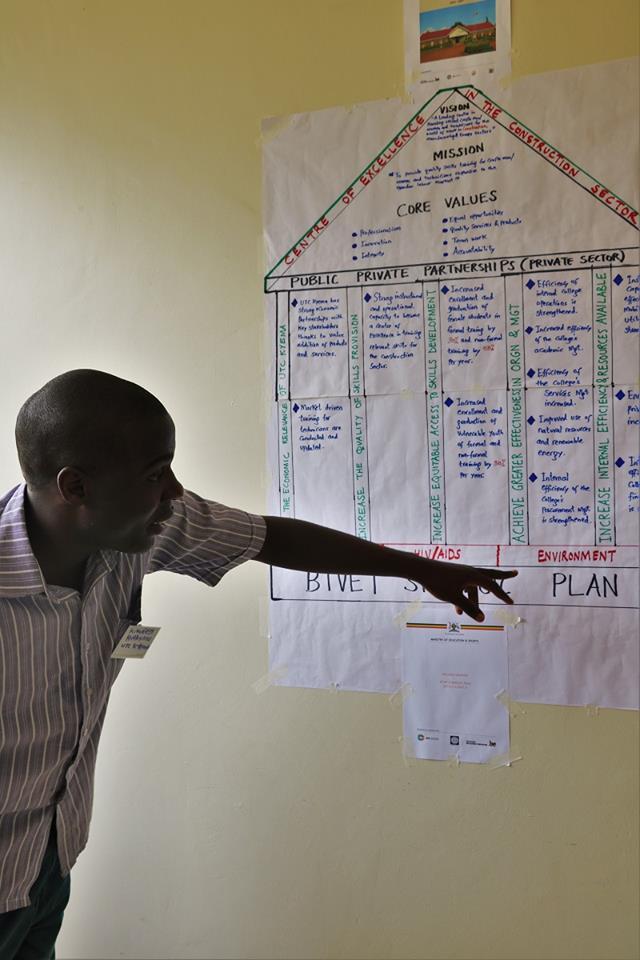From the world of training to the world of work: Launch of the Skills Development Fund and the business plans of 5 partner institutions
On the 13th
of December, the Support to Skilling Uganda (SSU) project piloted the Skills
Development Fund (SDF) and launched the
business plans of 5 partner institutions in the Albertine-Rwenzori region. At
an event in Fort Portal, partners from the local and national level gathered to
learn about the funding possibilities of the pilot SDF and to admire the newly
edited business plans.
Skills for competitiveness
In order to create
awareness among the targeted applicants, the pilot SDF was officially presented
to training
providers and the private sector in the Albertine-Rwenzori region. Business
Membership Organisations at regional level were targeted, as well as training
providers that were reached during the mapping exercise. As the SDF expert, Christine
Karungi, puts it “This launch marks the first step in the pilot SDF
roll-out strategy for Albertine-Rwenzori.”
By enhancing skills development, the pilot SDF aims to
improve local productivity and competitiveness. Its goal is to stimulate
bottom-up initiatives between training providers and the private sector through competitive
calls for proposals. By linking BTVET institutions with private sector
organisations, the fund will facilitate the transition from the world of
training to the world of work. Options for financing of
Skills Development will first be tested in Albertine-Rwenzori, and later
replicated in West-Nile and Karamoja. At the launch, Robert Odok Oceng, Director of Higher Education of the Ministry of
Education, requested eligible stakeholders “to
take up this opportunity to design innovative and relevant skills development
programs that will contribute to increased employability of the youth.”
From the classroom to the workshop
The event
also launched the newly edited business plans of 5 partner
training providers in Albertine-Rwenzori, which were proudly presented to partner organisations and
economic actors in the region. The SSU project supports St.
Joseph Technical Institute in Fort Portal, St. Simon Peter Vocational Training
Centre & Millennium Business School in Hoima; Kasese Youth Polytechnic
Institute in Kasese and UTC Kyema in Masindi to become modern, relevant, demand driven and qualitative Skills
Development Centres and eventually Centres of Excellence for particular trades. The first step
in this process is the development of business plans which will provide road maps
in the transformation process.
Through internal self-assessments and external BTVET
management coaching, each of the technical Institutes created its own business
plan. They worked out their own performance indicators, based on the Skilling
Uganda Strategic Plan, to set realistic targets and follow up on achievement of
the set objectives. LCV Chairperson of Kabarole Mr.Rwabuhinga encouraged the 5
partner institutions to be up for the task to become centers of excellence in
the region and to be accountable for the support they had received.
Based on the business plans, the SSU will plan its future support including infrastructure, relevant
equipment and coaching in terms of improving work-based learning practices,
assessing market relevance of training programs, career guidance, tracing of
graduates, etc. According to Erwin De Wandel,
Head of Development Cooperation for the Belgian Embassy “The launch of the Business plans marks the end of the project
inception phase but yet the beginning of the project support at the field
level.”
Latest news from this project
No news

